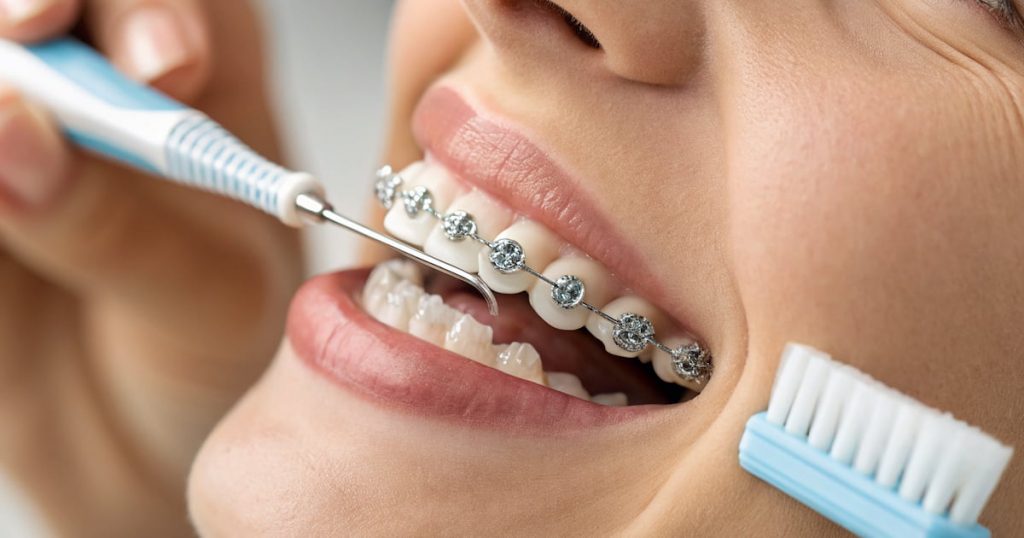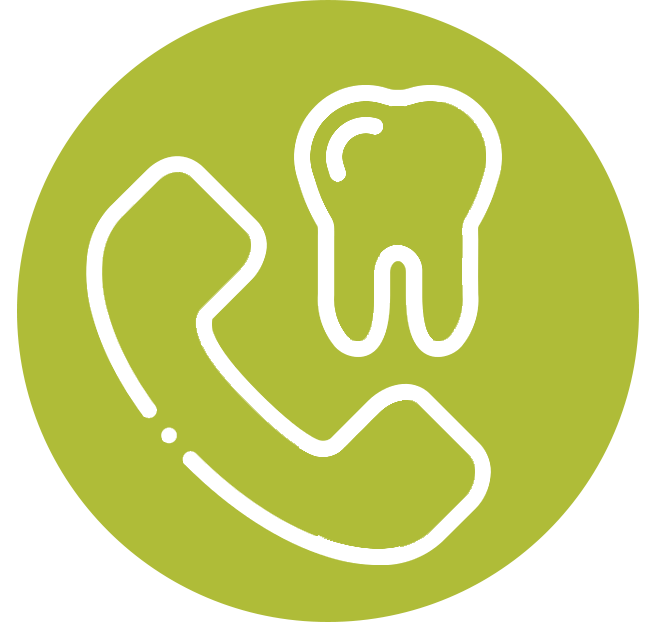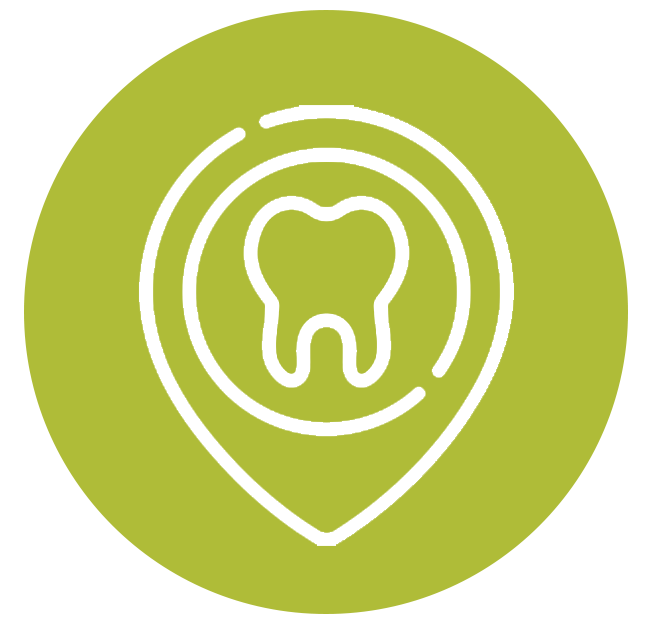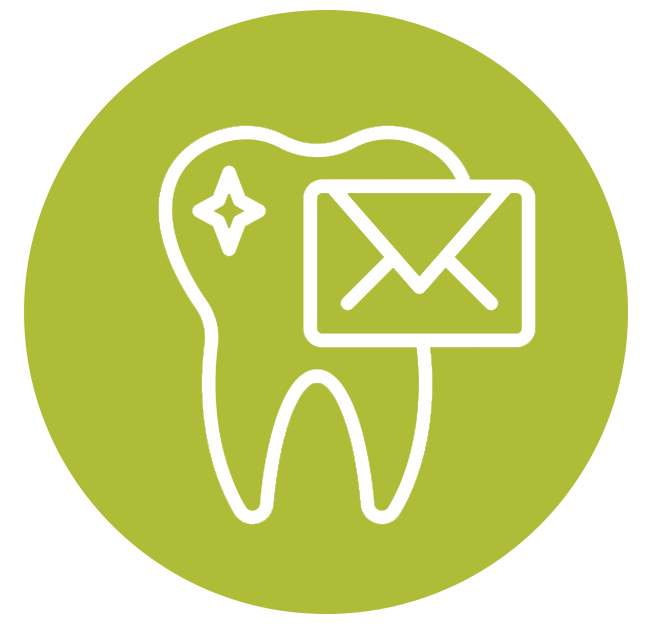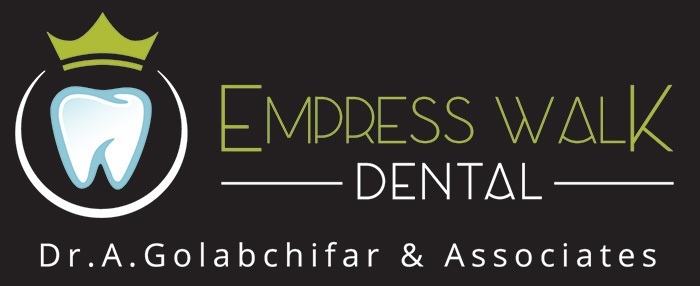Wearing braces can make brushing your teeth a little more complicated because food and plaque can get stuck around the brackets and wires. So, how do you brush your teeth with braces?
It’s very simple: First, rinse your mouth with water to loosen any leftover food. Then use a soft toothbrush or an electric toothbrush with fluoride toothpaste. Hold the brush at about a forty-five-degree angle, and gently clean above, below, and around each bracket. Make sure to brush the inside surfaces and the tops of your teeth, too. Finish by rinsing and checking in a mirror to make sure your teeth are clean.
By following this method every time, you can keep your teeth clean, your gums healthy, and your braces in top condition. Now, let us look at why this is so important and how you can perfect your technique.
Step-by-Step Guide to Brushing with Braces
Brushing your teeth with braces is not the same as brushing without them. It takes a bit more time and care to reach all the tricky spots. Here is how to do it right:
1. Rinse First
First, start by rinsing your mouth with water. This helps to wash away loose food particles and makes brushing easier.
2. Choose the Right Toothbrush and Toothpaste
Next, choose a toothbrush that is gentle on your gums and teeth. A soft toothbrush works well, but many people find an electric toothbrush cleans even better because it can reach places that are hard to get with a manual brush. Use toothpaste that contains fluoride, as fluoride helps protect your teeth from decay.
3. Brush the Outer Surfaces
When you begin brushing, hold your toothbrush at about a forty-five-degree angle to your gums. This angle helps the bristles clean the gum line and the edges of your teeth, where plaque likes to build up.
4. Clean Above and Below the Brackets
Gently move the brush in small circles, making sure to clean around each bracket and wire carefully. Spend time brushing the area above each bracket and then tilt the brush to clean below the bracket as well. This is important because plaque can hide there easily.
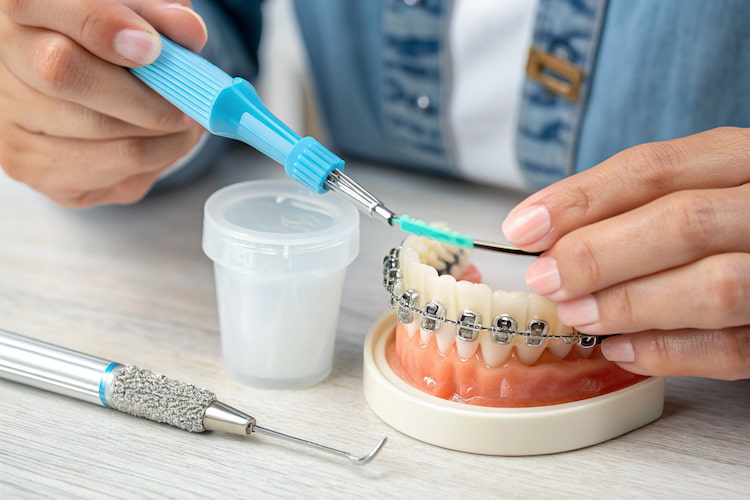
5. Do Not Forget the Inner Surfaces and Chewing Edges
Do not forget to brush the inside surfaces of your teeth, the parts that face your tongue, and the chewing surfaces on top of your molars. These areas also need attention, as food can get stuck there, too.
6. Rinse and Inspect
After you finish brushing all sides of your teeth, rinse your mouth well with water or mouthwash. Look in a mirror to check if there is any food or plaque left behind, especially around the brackets. If you see any, brush again gently.
Want a few extra tips? Check out this helpful guide from Colgate on how to brush your teeth with braces.
Tips for Brushing Teeth with Braces
One of the best habits is to brush your teeth after every meal. This stops food from staying in your braces for too long, which helps reduce plaque buildup and keeps your mouth feeling fresh. You can also:
- Keep a travel toothbrush in your bag for school, work, or outings
- Use an interdental brush to clean between brackets and wires
- Add mouthwash to your routine for fresher breath and extra protection
Adding mouthwash to your routine can provide extra protection. It reaches deep into your gums and freshens your breath, which is important when you wear braces. Empress Walk Dental offers thorough dental exams and cleanings to ensure your teeth stay in top shape.
How Often Should You Brush Your Teeth with Braces?
You should brush your teeth at least three times a day. The best times are in the morning, after lunch, and before bed. Brushing regularly prevents food from getting trapped and stops plaque from building up.
If you cannot brush after a meal right away, try rinsing your mouth with water or mouthwash to help keep your teeth clean until you can brush. Remember that brushing often does not mean brushing hard. Always be gentle to protect your gums and teeth.
For insights on how orthodontic treatments can enhance your overall oral health, including benefits beyond straightening teeth, check out Orthodontics to Enhance Oral Health.
Common Mistakes to Avoid When Brushing with Braces
Sometimes people try to brush too hard, thinking it cleans better, but this can harm their tooth enamel and irritate their gums. Be gentle but thorough.
Some toothpaste formulas are too rough and can scratch the surface of your brackets, so it is best to avoid abrasive toothpastes. Stick with smooth fluoride toothpaste instead. It is also important to brush for at least two minutes. Many people rush through brushing, but taking your time makes sure you clean every spot.
Finally, never skip flossing. Flossing removes plaque and food stuck between your teeth and under wires that your toothbrush can miss. Using floss threaders or special orthodontic floss makes this easier.
Families in North York seeking exceptional dental care for all ages, explore the best family dental care in North York.
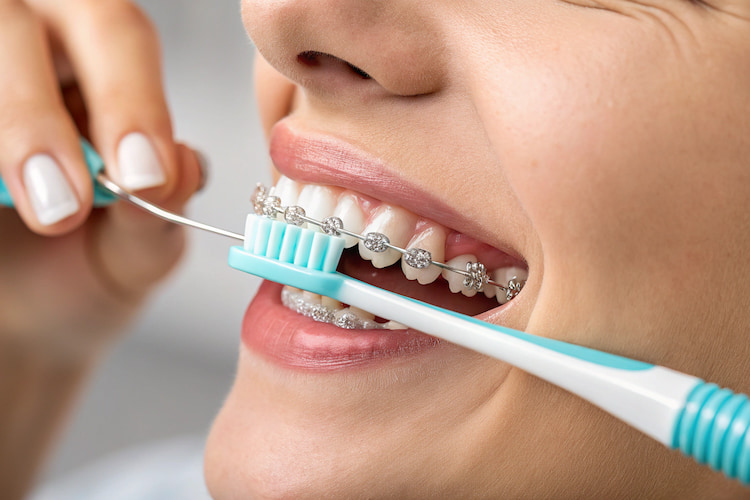
Why Proper Brushing Is Essential with Braces
When you have braces, the stakes for oral care are much higher. The metal brackets and wires create many small hiding spots where food and bacteria can collect. This makes it easier for plaque to form, which can lead to:
- Tooth decay as plaque turns into acid that weakens enamel
- Gum disease that causes swelling and delays treatment
- White spot marks that remain after the braces are removed
If you are considering orthodontic treatments, learn more about dental braces costs in Canada and how they can help you achieve a straight, healthy smile. Braces are a big investment, and taking good care of your teeth ensures you get the best possible result when your treatment is complete.
Take the Best Care of Your Smile with Empress Walk Dental
At Empress Walk Dental, our caring team provides personalized orthodontic care, expert advice, and the latest treatments to help you achieve a confident, beautiful smile.
Book your appointment today and let us guide you through every stage of your braces journey!
Sum Up
Brushing your teeth with braces requires extra care, but it is essential for keeping your smile healthy. By using the right tools, brushing carefully around brackets and wires, and brushing often, you can avoid common problems like cavities and gum disease. This will help your orthodontic treatment go smoothly and leave you with a healthy, beautiful smile when your braces come off.
At Empress Walk Dental, we understand that good oral care during orthodontic treatment is key to a great smile. Our caring team will guide you through the best brushing and cleaning techniques to keep your braces and teeth healthy. Book your appointment today and take the best care of your smile during your braces journey.
For those considering a more discreet orthodontic option, visit Invisalign treatments in North York, providing clear aligners that are comfortable and nearly invisible.
FAQ
-
How do I brush my teeth properly with braces?
Use a soft toothbrush and fluoride toothpaste. Hold the brush at a forty-five-degree angle and gently clean around the brackets, wires, and all tooth surfaces.
-
How often should I brush my teeth if I have braces?
Brush at least three times each day, especially after meals, to keep your braces and teeth clean.
-
Can I use an electric toothbrush with braces?
Yes. An electric toothbrush can help clean difficult areas and remove plaque better than a manual brush.
-
Do I need to floss with braces?
Yes. Flossing is very important. Use floss threaders or special brushes to clean between teeth and under wires.
-
What toothpaste is best for brushing with braces?
Use fluoride toothpaste to protect your teeth. Avoid toothpaste that feels rough because it can scratch your brackets.
Have questions or tips about brushing with braces? Share your thoughts below.
We would love to hear from you!


